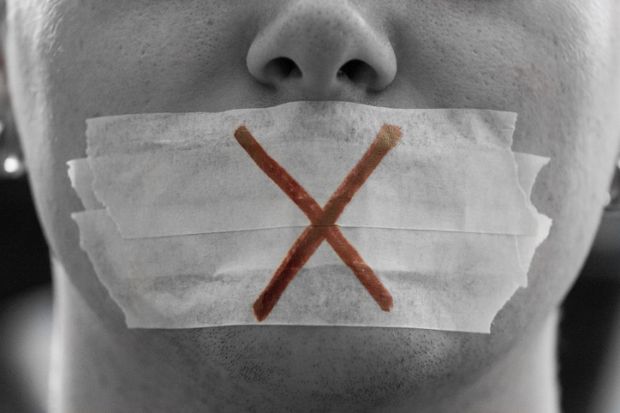Researchers have published a new index of the state of academic freedom worldwide and across time in a bid to better defend a value that “remains under attack in many places”.
More than 1,800 scholars assessed the level of academic freedom in different countries between 1900 and 2019 to create the Academic Freedom Index – the most comprehensive global assessment of scholarly autonomy to date.
The 2019 data include 144 countries, 56 of which achieved the highest “A” rating for academic freedom, gaining a score of at least 0.8 out of 1. However, 34 nations received a score of just 0.39 or below. Almost one third of these worst performing countries have constitutional provisions for academic freedom in place, but extensive violations occur in practice, according to the report. Countries in the lowest “E” band included China, Egypt, Iran, Thailand, Turkey and the United Arab Emirates.
The findings also show how academic freedom levels have shifted over time at a global and national level. There was a substantial global drop in levels of academic freedom during the Second World War and a steep overall increase during the third wave of democratisation in the early 1990s.
Nations were judged against five core indicators including freedom to research and teach, freedom of academic exchange and dissemination, institutional autonomy, campus integrity and freedom of academic and cultural expression. Each indicator was assessed by multiple experts for each country in each year based on a pre-defined scale using historical data and these individual ratings were then aggregated into an index.
The index also drew on additional factual indicators assessing states’ commitments to academic freedom at constitutional and international levels, as well as whether universities have ever existed in a given country.
The data show that universities’ institutional autonomy is generally subject to less extreme fluctuations than the other indicators. Meanwhile, countries where universities enjoy high institutional autonomy also tend to respect the freedom to research and teach.
The index, which was published in the report Free Universities: Putting the Academic Freedom Index into Action, was created by researchers at the University of Erlangen-Nuremberg and the V-Dem Institute at the University of Gothenburg; the Scholars at Risk Network; and the Global Public Policy Institute.
Scholars at Risk has long published an annual report including figures on the number of reported academic freedom attacks across the world. But Robert Quinn, executive director of the international network and one of the authors of the report, said that incident reporting does not expose the ways in which academics might self-censor as a result of their levels of freedom.
“Even in relatively unfree places the manifestations [of threats to academic freedom] are going to be minority experiences. Most people who stay away from certain topics may be able to go about their business [but] it doesn’t mean they’re free,” he said.
He added that the new index provides a more holistic assessment of the level of scholarly autonomy in different nations.
“For too long, governments and universities have lacked the data through which to measure and promote academic freedom”, he said. “I am thrilled that we now have a global dataset, which was produced by academics themselves in a collaborative, international effort. We must now use it to defend historical advances, push back against contemporary pressures on free academia, and nurture higher education values.”
Janika Spannagel, a research fellow at the Global Public Policy Institute and a co-author of the report, said that the aim of the index was to “alter incentive structures for universities and governments to make real respect for academic freedom a priority”.
“We aim to bring a rights and freedoms perspective into international debates on higher education quality, reputation and governance,” she said.
The report also calls for university leaders to consider the index when evaluating new and existing international higher education partnerships.




